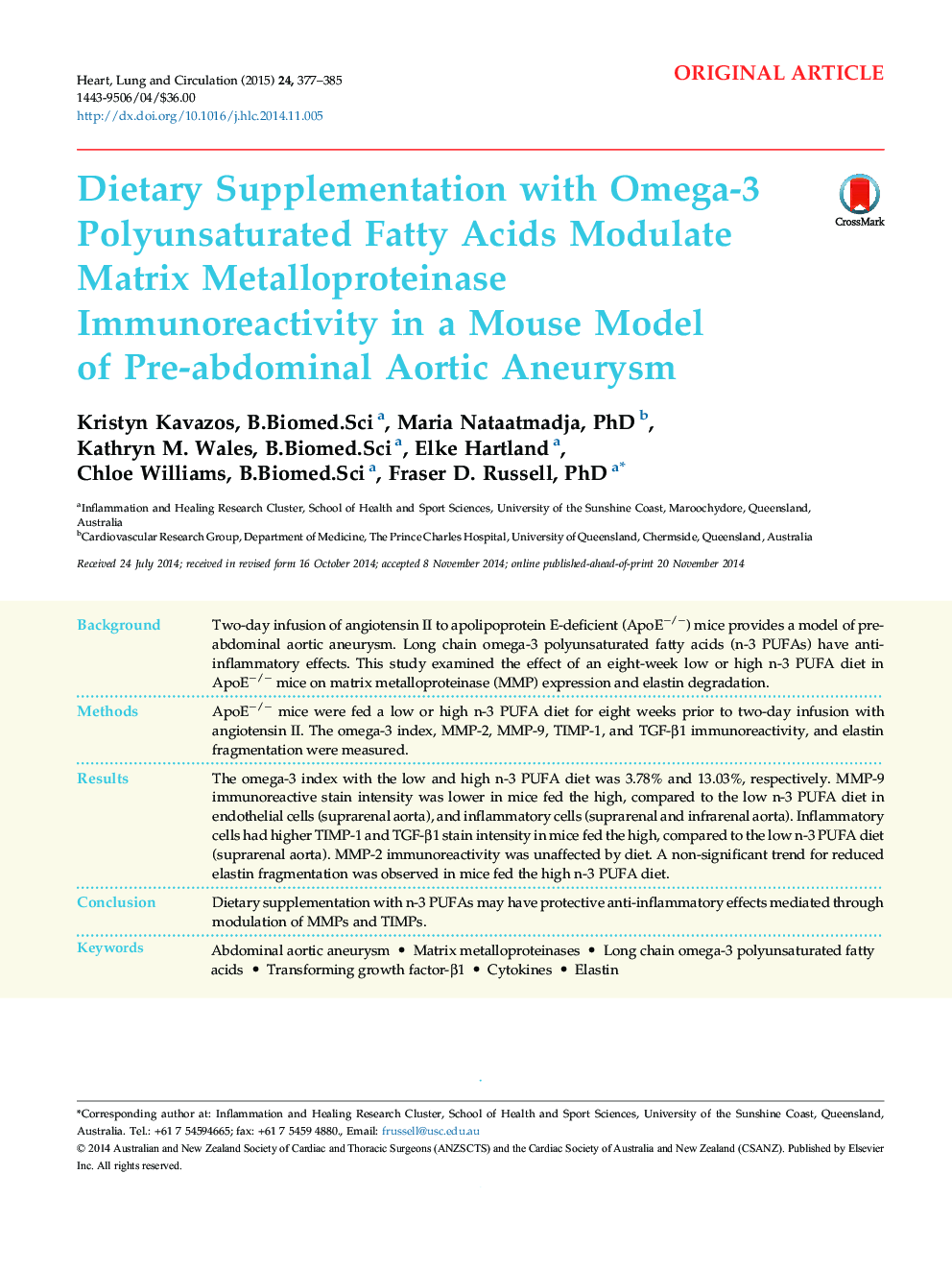| Article ID | Journal | Published Year | Pages | File Type |
|---|---|---|---|---|
| 2917591 | Heart, Lung and Circulation | 2015 | 9 Pages |
BackgroundTwo-day infusion of angiotensin II to apolipoprotein E-deficient (ApoE−/−) mice provides a model of pre-abdominal aortic aneurysm. Long chain omega-3 polyunsaturated fatty acids (n-3 PUFAs) have anti-inflammatory effects. This study examined the effect of an eight-week low or high n-3 PUFA diet in ApoE−/− mice on matrix metalloproteinase (MMP) expression and elastin degradation.MethodsApoE−/− mice were fed a low or high n-3 PUFA diet for eight weeks prior to two-day infusion with angiotensin II. The omega-3 index, MMP-2, MMP-9, TIMP-1, and TGF-β1 immunoreactivity, and elastin fragmentation were measured.ResultsThe omega-3 index with the low and high n-3 PUFA diet was 3.78% and 13.03%, respectively. MMP-9 immunoreactive stain intensity was lower in mice fed the high, compared to the low n-3 PUFA diet in endothelial cells (suprarenal aorta), and inflammatory cells (suprarenal and infrarenal aorta). Inflammatory cells had higher TIMP-1 and TGF-β1 stain intensity in mice fed the high, compared to the low n-3 PUFA diet (suprarenal aorta). MMP-2 immunoreactivity was unaffected by diet. A non-significant trend for reduced elastin fragmentation was observed in mice fed the high n-3 PUFA diet.ConclusionDietary supplementation with n-3 PUFAs may have protective anti-inflammatory effects mediated through modulation of MMPs and TIMPs.
